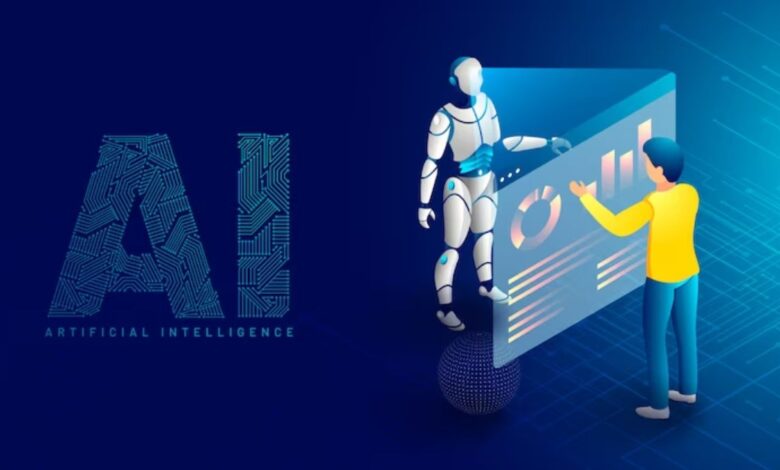Sustainable resource management: How analytics and AI technologies drive efficiency for businesses – Digital Transformation News

By Manish
Sustainability goes beyond buzzwords; it embodies a fundamental shift in the way businesses operate. The pursuit of sustainability is no longer an option but a strategic imperative. Companies are increasingly realizing that integrating sustainable practices not only benefits the environment but also enhances operational efficiency and profitability. The ability of AI to process large amounts of data and identify patterns and trends makes it a powerful tool in driving sustainability initiatives. By leveraging AI, we can gain insights into the environmental impacts of our actions and develop strategies to reduce our carbon footprint.
Embracing sustainability is about taking a holistic approach considering the ecological impact of every decision. From supply chain optimization to product design, sustainable living principles guide companies toward responsible resource management.
The heart of sustainable resource management lies in data. Advanced data analytics and complex modeling enable businesses to gain deep insights into their operations. Technologies like Power BI allow companies to visualize data and identify areas where resource consumption can be minimized with unparalleled clarity. For instance, predictive analytics can forecast energy usage patterns, allowing businesses to adjust operations for maximum efficiency.
Artificial Intelligence
Modern AI and data analytics tools have the potential to transform the field of sustainability by providing novel insights and solutions to some of the most pressing challenges faced by humanity today. Here are some benefits of AI in sustainability initiatives:
- Increased efficiency and accuracy: AI technologies can help to optimize resource consumption, reduce waste, and minimize environmental impact. For example, AI-enabled predictive maintenance systems can monitor equipment performance, identify potential problems, and schedule repairs before they become critical. This can reduce energy consumption and maintenance costs.
- Responsible extraction: Responsible extraction is a key goal for the mining industry
, as it aims to minimize the environmental and social impacts of its operations. One way to achieve this is by using AI and analytics solutions that can optimize the extraction process, from planning the best routes and designing efficient shafts, to estimating the ore grade and applying advanced techniques for enrichment. These solutions can also help to reduce wastage and increase the yield from areas that are not normally considered viable for mining. By leveraging the power of data and intelligence, responsible extraction can become a reality for the mining sector.
- Better decision making: Solutions can analyze vast amounts of data from different sources, identify patterns and make predictions that can help policymakers and decision-makers to make informed decisions. This can lead to more effective and efficient use of resources, as well as more sustainable policies and programs.
- Improved monitoring and evaluation: AI can be used to monitor and evaluate the impact of sustainability initiatives in real-time. For example, remote sensing technologies can be used to monitor deforestation, land use change, and wildlife populations, while AI-powered analytics can provide near real-time feedback on the effectiveness of different interventions.
- Novel solutions to complex problems: AI can be used to develop innovative solutions to complex sustainability challenges, such as climate change, biodiversity loss, and resource depletion. These solutions can help to optimize renewable energy systems, improve crop yields, and identify new materials for more sustainable manufacturing processes.
- Enhanced collaboration: With modern tools, businesses can facilitate collaboration between stakeholders from different sectors and disciplines, helping to create more integrated and effective sustainability initiatives. AI-powered platforms can enable data sharing, communication, and coordination, and help to identify areas where different stakeholders can work together to achieve common sustainability goals.
- Least wasteful data and energy efficiency: One of the key principles of sustainable resource management is minimizing waste. This extends to data and energy as well. Businesses can implement data storage practices using solutions like Azure Synapse Analytics that prioritize efficiency and sustainability, such as using cloud-based solutions with optimal data center locations. Additionally, energy-efficient technologies, like LED lighting and smart HVAC systems, can significantly reduce a company’s carbon footprint.
Ultimately, businesses must see a compelling case for sustainability. It’s not just about being environmentally responsible; it’s about long-term viability. Sustainable practices reduce operational costs, enhance brand reputation, and open new markets. Investors and consumers increasingly favor companies that are committed to sustainability.
In conclusion, the fusion of analytics, AI, and modern technologies is a game-changer for businesses seeking to achieve sustainability while driving efficiency. By adopting these tools and embracing sustainable living principles, companies can reduce waste, optimize resource usage, and secure their place in a future where sustainability is not just a choice but a necessity.
As the world continues to evolve, businesses that prioritize sustainability, combined with the power of these modern technologies, will not only survive but thrive in an increasingly eco-conscious market
The author is founder and CEO, Advaiya Solutions



